Last night, 12 November 2018, the second season of the series ‘Mars’ premiered on the National Geographic Channel. Produced by the Academy Award winning team of Ron Howard and Brian Grazer ‘Mars’ is a combination fictional story of the initial colonization of Mars interspersed with comments by real life experts, it is a docudrama in the terminology of Hollywood.

The experts range from scientists such as Astrophysicist Neil deGrasse Tyson to space age industrialists like Elon Musk to science fiction writers like Kim Stanley Robinson. The comments from these experts serve to illustrate aspects of the story, in other words provide a little technical background to the action in the story.
In season one of Mars (See my posts of 15 Nov 2016 and 20 Dec 2016) the crew of the spaceship Daedalus succeed in making mankind’s first landing on the planet, although not without the loss of the spaceship’s commander. The voyage and first attempt at colonization is funded and supported by the ‘International Mars Science Foundation’ or IMSF. Despite several setbacks the crew of the Daedalus establish a base and other colonists join them on the red planet. A disaster that kills several of the astronauts almost causes the end of the mission but the discovery of life on Mars convinces the IMSF leadership to keep the colony going.
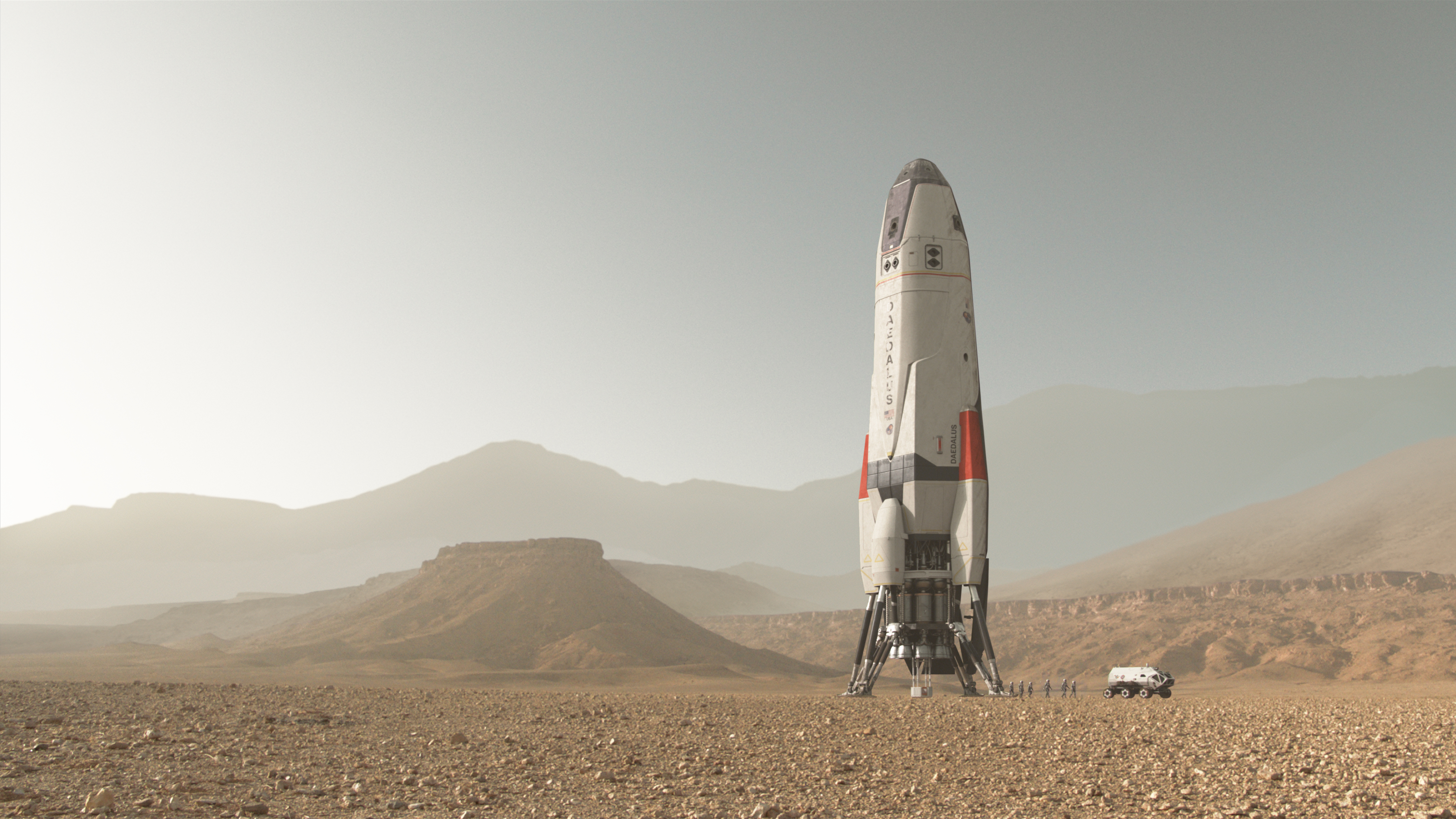
Season two begins five years later, when the base / colony, now named Olympus Town has grown in size to a population of over two hundred. In the opening an entirely new group of colonists arrive seemingly without warning. The new colonists are not scientists or explorers like the astronauts sent by the IMSF. Instead they are mining engineers and workers sent by a private corporation called Lukrum. The two groups get off to a rocky start even before the Lukrum spaceship lands as debris from its heat shield nearly lands on Olympus town.
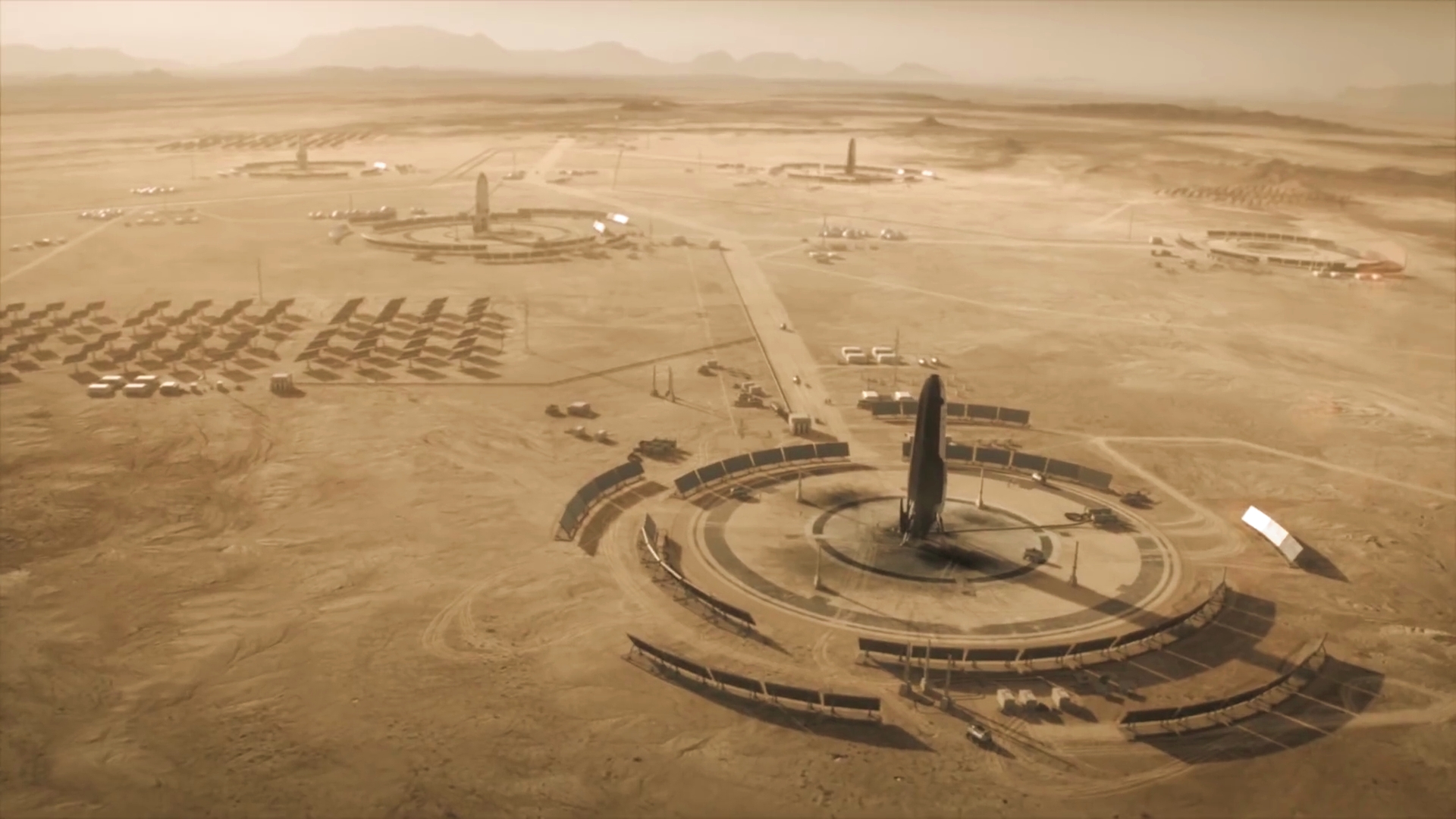
Things quickly escalate when the manager of the mining group, Kurt Hurrelle played by actor Jeff Hephner, informs the commander of Olympus Town, Hana Seung played by actress Jihea, that since his mission did not include the equipment needed to produce water and electrical power her people are going to have to provide these supplies to his people. The big wigs back on Earth eventually work out a compromise where the Lukrum team will provide Olympus Town with the minerals it needs for its terraforming mission in exchange for water and power. Nevertheless it’s pretty obvious that conflicts between the scientists and miners are going to be a major theme in this second season.
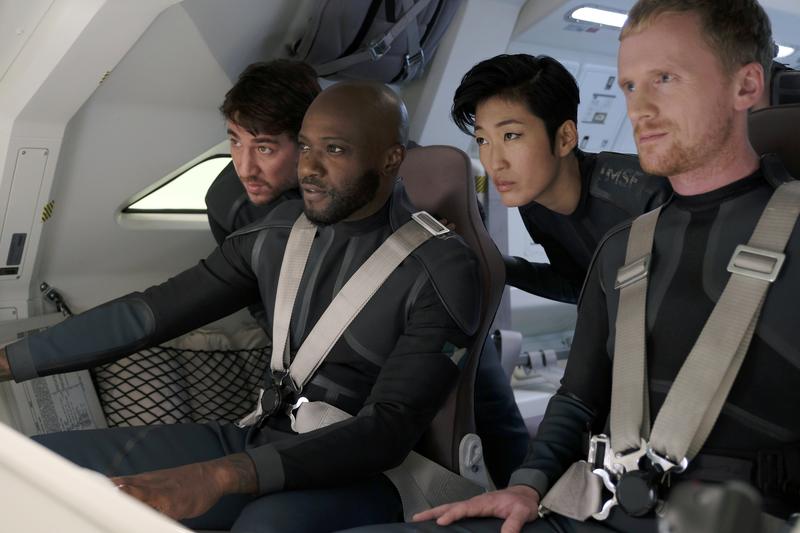
To be honest ‘Mars’ really isn’t a great science fiction story. That’s because the need to tie the drama to each of the difficulties in colonizing Mars, as explained by the panel of experts, makes each episode little more than a moral lesson. (The Grasshopper and the Ant anyone!) In particular, in the first episode the private enterprise astronauts are such jerks that their helmets ought to be painted black like the hats of the bad guys in an old western.
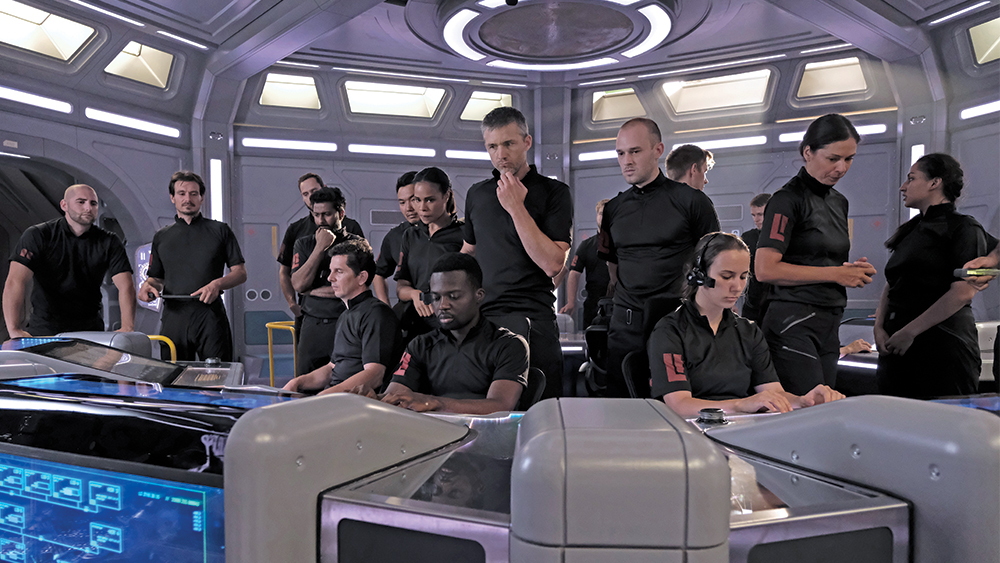
Still, ‘Mars’ is thoughtful science fiction and in a world of super heroes and Jedi knights that’s a rare treat. So I’ll keep watching ‘Mars’, and I’ll keep hoping that mature, thought provoking science fiction will become a more common phenomenon in our culture.
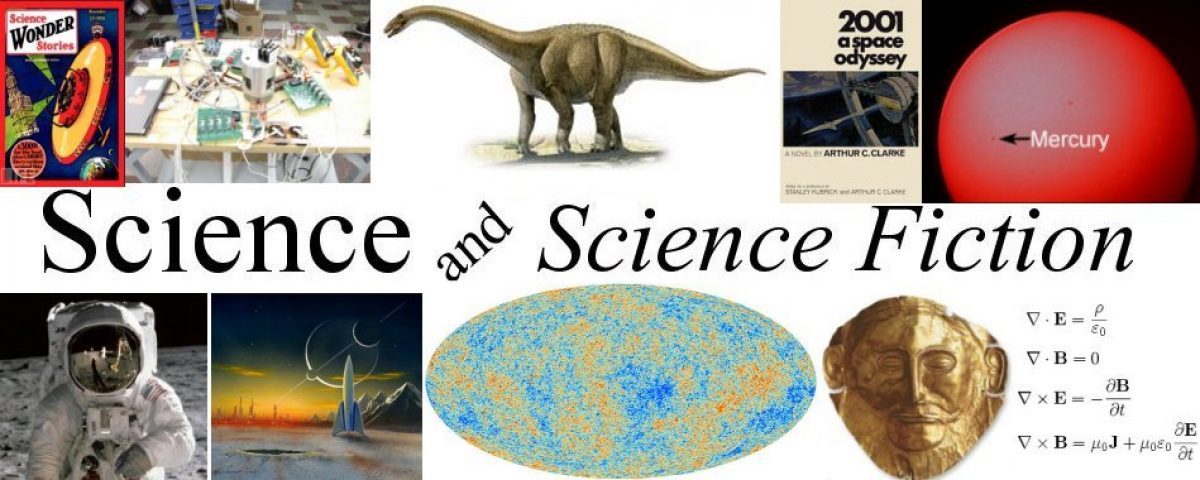
Both the acting and the cinematography in this series is first-rate, in the context of prime-time television. The depicted landscapes of Mars, the interiors of spacecraft and ground vehicles, and the personal interaction of key members of the international Mars mission, are all plausible, and the viewer can easily identify with most of the characters. The depiction of the top leader of the private corporate expedition is a bit overdrawn, unless we assume that 20 years in the future, corporations will be much more heavy-handed than they are today. What’s missing isn’t drama, believability of plot, or good acting, but more perspective about the long-range strategy of the nonprofit institute that organized the first landing and the ensuing scientific community on Mars. What is that strategy, and how are the people of Earth reacting to its exploits on Mars? One-third of the way through the second season, we don’t know, yet…
Thanks for the comment. I agree with your analysis right down the line and even if they do stress the moral of the story a bit too much still it’s good to have some serious SF on TV for a change. Hope to hear from you again soon!
Bob L